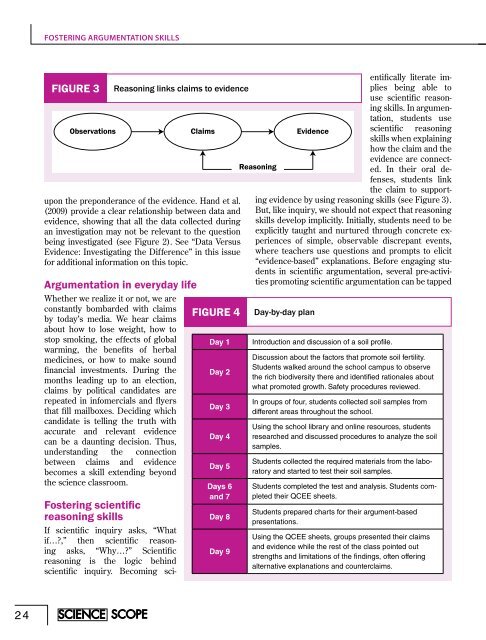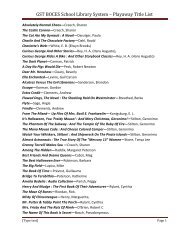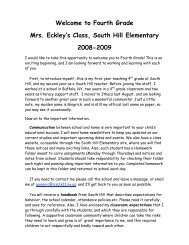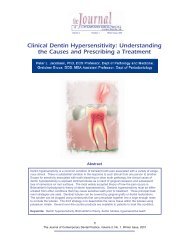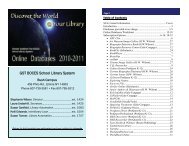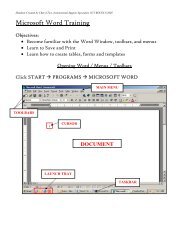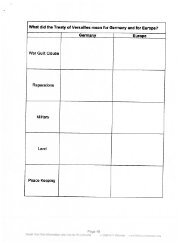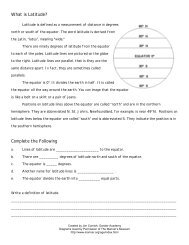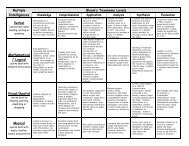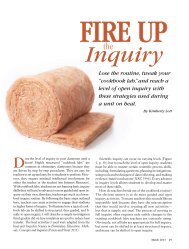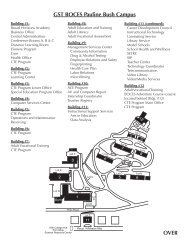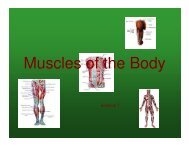Fostering Argumentation Skills - gst boces
Fostering Argumentation Skills - gst boces
Fostering Argumentation Skills - gst boces
Create successful ePaper yourself
Turn your PDF publications into a flip-book with our unique Google optimized e-Paper software.
<strong>Fostering</strong> <strong>Argumentation</strong> <strong>Skills</strong>FIGURE 3upon the preponderance of the evidence. Hand et al.(2009) provide a clear relationship between data andevidence, showing that all the data collected duringan investigation may not be relevant to the questionbeing investigated (see Figure 2). See “Data VersusEvidence: Investigating the Difference” in this issuefor additional information on this topic.<strong>Argumentation</strong> in everyday lifeWhether we realize it or not, we areconstantly bombarded with claimsby today’s media. We hear claimsabout how to lose weight, how tostop smoking, the effects of globalwarming, the benefits of herbalmedicines, or how to make soundfinancial investments. During themonths leading up to an election,claims by political candidates arerepeated in infomercials and flyersthat fill mailboxes. Deciding whichcandidate is telling the truth withaccurate and relevant evidencecan be a daunting decision. Thus,understanding the connectionbetween claims and evidencebecomes a skill extending beyondthe science classroom.<strong>Fostering</strong> scientificreasoning skillsIf scientific inquiry asks, “Whatif…?,” then scientific reasoningasks, “Why…?” Scientificreasoning is the logic behindscientific inquiry. Becoming sci-Reasoning links claims to evidenceObservations Claims EvidenceFIGURE 4Day 1Day 2Day 3Day 4Day 5Days 6and 7Day 8Day 9entifically literate impliesbeing able touse scientific reasoningskills. In argumentation,students usescientific reasoningskills when explaininghow the claim and theevidence are connected.In their oral defenses,students linkthe claim to supportingevidence by using reasoning skills (see Figure 3).But, like inquiry, we should not expect that reasoningskills develop implicitly. Initially, students need to beexplicitly taught and nurtured through concrete experiencesof simple, observable discrepant events,where teachers use questions and prompts to elicit“evidence-based” explanations. Before engaging studentsin scientific argumentation, several pre-activitiespromoting scientific argumentation can be tappedReasoningDay-by-day planIntroduction and discussion of a soil profile.Discussion about the factors that promote soil fertility.Students walked around the school campus to observethe rich biodiversity there and identified rationales aboutwhat promoted growth. Safety procedures reviewed.In groups of four, students collected soil samples fromdifferent areas throughout the school.Using the school library and online resources, studentsresearched and discussed procedures to analyze the soilsamples.Students collected the required materials from the laboratoryand started to test their soil samples.Students completed the test and analysis. Students completedtheir QCEE sheets.Students prepared charts for their argument-basedpresentations.Using the QCEE sheets, groups presented their claimsand evidence while the rest of the class pointed outstrengths and limitations of the findings, often offeringalternative explanations and counterclaims.24 SCIENCE SCOPE


